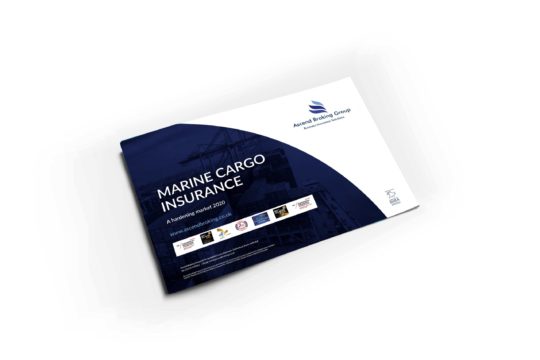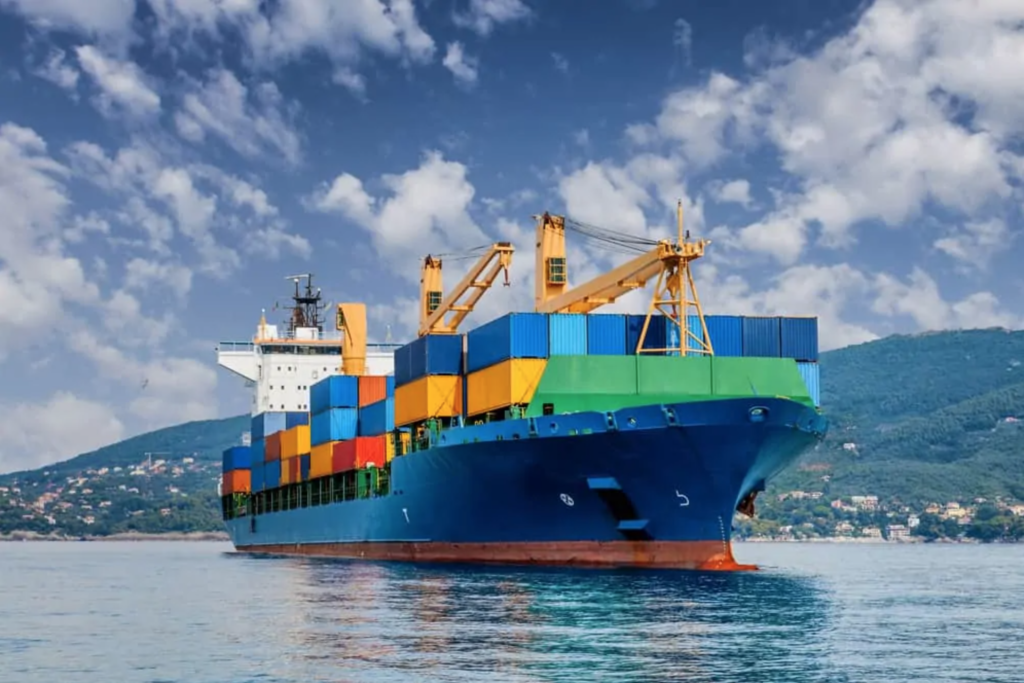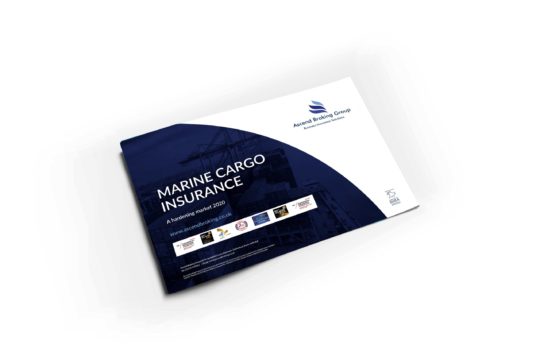Wines and Spirits Insurance
- Home
- Private: Insurance
- Wines and Spirits Insurance
Wineries Insurance
Why do I need wine and spirits insurance?
If your business deals with wines and spirits, it’s crucial to prioritise securing insurance for your products. Manufacture, storage and transporting these goods can lead to various issues, including damages due to extreme heat, implosions of corks, damage to labels and theft of stock.
To protect your investment, it’s vital to have comprehensive insurance coverage that covers all potential risks associated with storing and shipping wines and spirits. This can help ensure that your products are protected from any potential damages or losses that may occur during transportation or storage.
Who needs wine and spirits insurance?
Wine and spirits are highly sensitive products that require special attention during transportation to maintain their quality and value. With a market value of around 49 billion pounds, these products are imported and exported globally on a daily basis. Due to their fragility and high value, it is important to use insurance brokers that have an understanding of these processes to make sure you’re covered correctly.
At Ascend, we understand that regardless of the method used, importing wine and spirits requires careful planning, coordination and compliance with various regulations and customs procedures. It’s essential to work with experienced logistics providers and customs brokers to ensure that the products are imported safely and legally.
Here at Ascend we are looking to progress into the wine and spirits industry to support you

Issues you must make sure you are covered for
Vineyards
Press Plants
Storage
Business Interruption
Transportation
Liability
Product Recall
Contamination
Duty
Damage to Heat
Marine
and much more
Call for a quote
Make an enquiry
If you buy, sell, import or export wine and spirits then you will need to purchase cargo insurance
Accidents and losses are common occurrences during the transportation of goods, especially wine and spirits, which require extra care. That’s why it’s essential to have insurance coverage that provides peace of mind when a loss occurs.
At Ascend Cargo, we understand the complexities of the wine and spirits industry, and we offer insurance policies that use a recognized valuation index to ensure you’re fully protected in case of loss or damage to your shipments. Our team of experienced insurance professionals are here to guide you and provide you with the coverage you need to safeguard your business.
We have exclusive access to products from underwriters who specialise in cargo insurance, and with over 20 years of experience in this sector, we can advise you on the best product for your unique requirements. Our policies are tailored to meet your specific needs through bespoke wording, and we provide specialist advice that gives you peace of mind.
Contact us today to discuss your insurance needs and ensure that you’re protected on the correct basis. Let Ascend Cargo help you protect your valuable assets and minimise the risks associated with shipping wine and spirits.
Carrier’s trading conditions
If you rely on carriers’ trading conditions you may not realise just how restrictive those conditions can be in terms of:
• The circumstances in which the carrier has to pay for loss or damage
• How little the carrier might actually pay in compensation.
These questions aim to highlight some of the potential problems and to demonstrate the benefits of buyers and sellers arranging insurance cover.

Terms of sale
Sales contracts generally incorporate internationally-recognised terms of sale known as Incoterms, which state:
Various obligations of the seller and the buyer
How various costs relating to the shipment are to be shared between parties
When risk in the goods passes from the seller to the buyer.
In particular, under two of the terms – CIF and CIP – insurance is arranged by the seller for the buyer’s benefit during the main carriage.
Case study – relying on haulier’s insurance
Relying on haulier’s cover – don’t do it.
We were introduced to a company who until recently did not purchase Marine Cargo Insurance, and were left out of pocket following a claim. They incorrectly assumed, as they were using a haulage company to move their goods, that loss or damage would be covered by the haulier’s insurance. This is not correct. Haulier’s are only liable for their legal liability to your goods, not the goods themselves. Therefore, it would need to be proven that they were legally negligent in causing loss or damage before any compensation was due to you.
You must consider:
- Even if negligence is proven, usually their liability is limited under the terms of RHA Conditions (or similar) – this would typically be £1,300 per ton regardless of the goods being carried. This could leave you seriously out of pocket.
- Losses outside of the haulier’s control are not covered – “acts of god”
- Are the limits of indemnity on the haulier’s policy adequate? Who are they insured with, are they a reputable and solvent? Is the haulier you speak with actually the one moving the goods? It is common practice for hauliers to sub-contract work to other firms, so even if you check your haulier, it may be in vain if they are sub-contracting to another company who may even sub-contract the work again themselves!
The solution
Protect your bottom line and purchase Marine Cargo Insurance. It may be cheaper than you think (premiums start as low as £250) and we can review your exposures to tailor a policy on your behalf.
Typical Limitation Figures
- UK road haulage – RHA conditions GBP1.30 per kg
- International road haulage – CMR SDR8.33 (about GBP9.09*) per kg
- Freight forwarding – BIFA conditions SDR2.00 (about GBP2.20*) per kg
- Carriage by air – Warsaw Convention USD20.00 (about GBP11.90*) per kg
- Carriage by sea – Hague-Visby Rules SDR2.00 (about GBP2.20*) per kg

Cargo insurance typically covers all risks of physical loss of, or damage to, goods during transit, imports, exports and domestic carriage, including any incidental storage. Storage outside the ordinary course of transit can be added as an extension to a cargo insurance policy.
Ascend Cargo has the solution.
Cargo insurance is generally available to or from ports or places worldwide, however:
- Terms and conditions may vary for countries where there are higher than normal risks of war or terrorism
- Cover may not be available where trade is subject to international sanctions
- Cover may not be available for the inland leg to or from the port in countries where the infrastructure is poor or where there is an unacceptable theft risk
- Some countries require insurance to be placed locally or restrict the terms of sale or purchase (Incoterm) that can be used.
Ascend Cargo has the solution.
Problems sometimes arise where buyers or sellers don’t arrange their own insurance, relying instead on:
- Their suppliers or customers arranging cargo insurance, or
- A freight forwarder arranging insurance for them.
Those who think that carriers will pay for loss or damage may be surprised that contracts of carriage generally limit the liability of the carrier and can exclude it altogether.

Negligence is the failure to use reasonable care, resulting in damage or injury to the imported commodities, for example, shipping time-sensitive goods into a known congested port.

This refers to the deterioration of wine and spirits’ bottles because of the fundamental instability of the components of which they are made, as opposed to deterioration caused by external forces.

This stands for ‘War, Strikes, Riots and civil commotions.’ An ordinary marine insurance policy does not cover loss due to these conditions, but is almost always added back to the policy by insurers.

If the wine or spirits are damaged and this results in the loss of profits from those goods, insurance will only cover the cost of the goods and not the potential profits. If the importer ordered goods for a specific event or customer and delay causes the goods to no longer be wanted, they can’t claim the lost sale.

If the client fails to pay during any point in the supply chain, resulting in any loss of the wines and spirits, the insurance will not cover the loss.

This refers to any loss, damage, or expense attributable to the willful misconduct of the insured. For example, the importer could purposefully ship goods set to expire before arrival for the purpose of seeking a claim.

This refers to any loss, damage or expense caused by insufficient or unsuitable packing only when packed by the insured.

This refers to loss, damage or expense arising from insolvency or financial default of the owners, managers, charterers or operators of the vessel. This means that the carrier is facing a financial shortage.

Ordinary leakage, ordinary loss in weight or volume or ordinary wear and tear are generally excluded from all-risk policies.
Frequently Asked Questions
Marine cargo insurance covers losses arising from physical damage to goods whilst being transported around the world, whether by road, rail, sea or air.
Any number of things can happen to your goods while they are being transported. They could be stolen en route or destroyed in a collision at sea; either way, resulting in a financial burden for you, if not insured. Marine cargo goes beyond the cover provided by goods in transit insurance. It ensures your goods are protected during loading and unloading, while in storage or while being transported – domestically or internationally.
Marine cargo insurance covers a range of goods, from raw materials and single components, through to finished products and appliances. It’s designed for any business – large or small –that imports, exports and/or distributes goods around the UK, such as manufacturers, wholesalers, retailers and distributors.
It reduces your exposure to financial loss – whether buying or selling goods, you have a financial interest in their safe transportation and delivery. Marine cargo insurance protects your interest in the event of a loss.
It’s usually a contractual requirement – as part of the sale contract, it’s often a commercial necessity to have marine cargo insurance. Being able to quickly replace damaged goods will help you maintain strong customer relationships. Marine cargo insurance can also protect the interests of the banks or third parties helping to finance the transaction.
Carrier’s liability insurance won’t fully protect you – haulage and shipping companies may be responsible for the transportation of your goods, but their liability will be limited by contract or law in the event of loss.
Furthermore, carrier’s liability insurance doesn’t cover many common causes of loss, such as General Average. Any compensation available often falls short of the full valuation of the goods and pursuing overseas hauliers can be a difficult and time-consuming process.
Your clients can maintain control of their own insurance – if a UK retailer imports goods from China, the cost of marine cargo insurance is likely to be included as part of the sales contract. The insurance is then taken out with a Chinese insurer by the supplier. In the event that the goods are damaged en route, the UK retailer would have to deal with the Chinese insurer via a UK agent – someone with whom he has no usual contact or relationship.
The simpler alternative is for the UK retailer to arrange their own marine cargo insurance via a UK broker and insurer. The sales contract would be amended to reflect that responsibility for insurance now sits with the buyer. In the event of a claim, the process would be much quicker and easier, and the cost of insurance is likely to be far more competitive.
Protection from General Average – General Average is a legal principle in maritime law, whereby all cargo owners proportionately share losses resulting from voluntary sacrifice or costs incurred in order to prevent a total loss. Following the declaration of a General Average, cargo will be held pending receipt of General Average Guarantees and Bonds. Cargo owners are well advised to be insured, so their insurers can handle these situations on your behalf and provide the required guarantees to allow your cargo to be released.
It reduces your exposure to financial loss – whether buying or selling
goods, you have a financial interest in their safe transportation and delivery.
Marine cargo insurance protects your interest in the event of a loss.
It’s usually a contractual requirement – as part of the sale contract, it’s often a commercial necessity to have marine cargo insurance. Being able to quickly replace damaged goods will help you maintain strong customer relationships.
Marine cargo insurance can also protect the interests of the banks or third parties helping to finance the transaction.
Carrier’s liability insurance won’t fully protect you – haulage and shipping companies may be responsible for the transportation of your goods, but their liability will be limited by contract or law in the event of loss.
Furthermore, carrier’s liability insurance doesn’t cover many common causes of loss, such as General Average. Any compensation available often falls short of the full valuation of the goods and pursuing overseas hauliers can be a difficult and time-consuming process.
Your clients can maintain control of their own insurance – if a UK retailer imports goods from China, the cost of marine cargo insurance is likely to be included as part of the sales contract. The insurance is then taken out with a Chinese insurer by the supplier. In the event that the goods are damaged en route, the UK retailer would have to deal with the Chinese insurer via a UK agent – someone with whom he has no usual contact or relationship.
The simpler alternative is for the UK retailer to arrange their own marine cargo insurance via a UK broker and insurer. The sales contract would be amended to reflect that responsibility for insurance now sits with the buyer. In the event of a claim, the process would be much quicker and easier, and the cost of insurance is likely to be far more competitive.
Protection from General Average – General Average is a legal principle in maritime law, whereby all cargo owners proportionately share losses resulting from voluntary sacrifice or costs incurred in order to prevent a total loss. Following the declaration of a General Average, cargo will be held pending receipt of General Average Guarantees and Bonds. Cargo owners are well advised to be insured, so their insurers can handle these situations on your behalf and provide the required guarantees to allow your cargo to be released.
Live Directors & Officers news from across the web
on September 29, 2023 at 1:00 pm
During the attack, the group deployed several tools, most notably a newly-discovered sophisticated backdoor that ESET named LightlessCan
Lazarus luring employees with trojanized coding challenges: The case of a Spanish aerospace company
on September 29, 2023 at 9:30 pm
During the attack, the group deployed several tools, most notably a newly-discovered sophisticated backdoor that ESET named LightlessCan
5 of the top programming languages for cybersecurity
on September 27, 2023 at 9:30 am
While far from all roles in security explicitly demand coding skills, it’s challenging to envision a career in this field that wouldn’t derive substantial advantages from at least a basic understanding of fundamental coding principles
In the Press

Nigel Holmes
Please contact Nigel Holmes for any enquiries. Nigel has been involved in the wine industry for a number of years and would be more than happy to discuss your needs. Nigel has imported wine and spirits into the Canaries and has invaluable experience regarding shipments of wines. Nigel’s contact details can be found below or, if you would prefer, please complete the contact form at the bottom of this page and Nigel will contact you at your convenience.
Business executive
T: 07761 285173 E: nigel.holmes@ascendbrokingold.co.uk
Downloads

Marine Cargo Guide
Download our guide to marine cargo insurance




